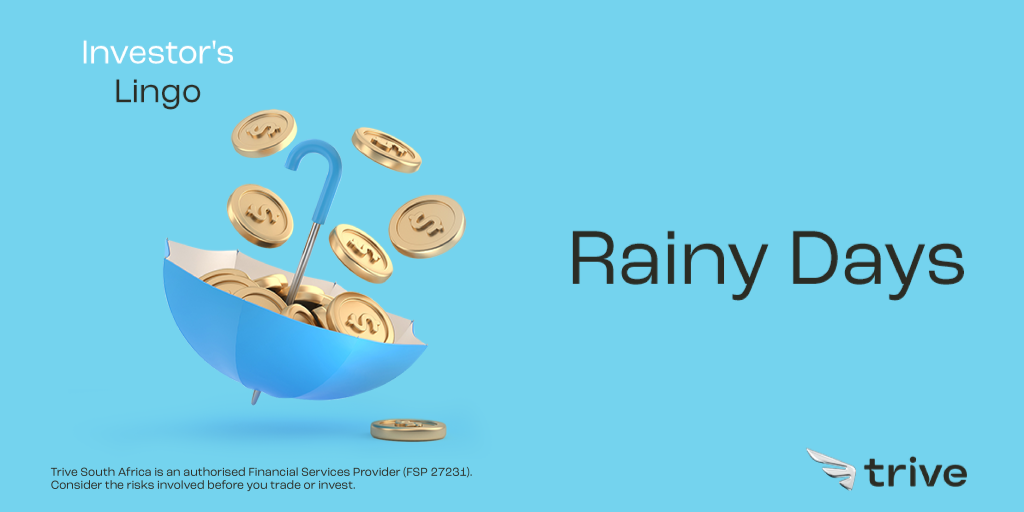
Preparing for financial emergencies is just as important as bracing for stormy weather. Rainy day finance entails establishing a strong financial safety net to weather unexpected circumstances. From sudden job loss to medical emergencies, having a reliable plan in place can provide peace of mind and safeguard your financial well-being. In this article, we’ll delve into the significance of rainy day finance and offer practical strategies to help you build and maintain a secure financial umbrella.
1. The Significance of Rainy Day Finance:
Rainy day funds are indispensable in an unpredictable world. They act as a cushion, offering a financial safety net during challenging times. Whether it’s covering essential expenses or avoiding high-interest loans, a rainy day fund empowers you to take control of your financial future. By preparing for emergencies, you can reduce stress and secure your financial well-being.
2. Establishing Your Rainy Day Fund:
a. Determine the Ideal Amount: Experts recommend saving three to six months’ worth of living expenses. Calculate the target amount required to comfortably sustain you during emergencies.
b. Begin with Small Steps: Building a rainy day fund might seem daunting if you’re living paycheck to paycheck. Start by setting aside a small percentage of your income each month, even if it’s just a small amount. Consistency is key, and over time, you can incrementally increase your savings.
c. Automate Savings: Simplify the saving process by setting up automatic transfers from your checking account to a designated rainy day fund. This ensures regular contributions without the need for constant manual effort.
d. Trim Unnecessary Expenses: Assess your spending habits and identify areas where you can cut unnecessary costs. Small adjustments, such as reducing dining out or cancelling unused subscriptions, can accumulate and boost your savings significantly.
3. Safeguarding Your Rainy Day Fund:
a. Separate Account: Open a dedicated bank account for your rainy day fund. Separating it from your regular accounts deters the temptation to dip into it for non-emergency expenses.
b. Reserve for Emergencies Only: Train yourself to use the fund strictly for genuine emergencies. Define emergency criteria and adhere to them. Although a weekend getaway or a new gadget may entice you, prioritize the long-term security of your finances.
c. Regular Reviews: Periodically assess the progress of your rainy day fund and make necessary adjustments. Changes in living expenses, income, or family size may warrant a re-evaluation of your target amount.
4. Enhancing Your Rainy Day Fund:
a. Insurance Coverage: Mitigate major financial setbacks by acquiring appropriate insurance coverage, such as health, homeowner’s or renter’s, and auto insurance. Regularly review your policies to ensure they align with your current needs.
b. Exploring Additional Income: Consider diversifying your income streams through freelancing, part-time work, or monetizing a hobby. Supplementing your earnings can expedite your savings and provide an extra layer of financial security.
c. Debt Management: Prioritize paying off high-interest debts, such as credit cards or personal loans. Reducing your debt burden frees up funds to strengthen your rainy day savings.
Developing a robust rainy day fund is a vital step toward achieving financial stability and resilience. Although it requires discipline and time, the peace of mind it brings is invaluable. Remember, it’s never too late to start. By using the strategies outlined in this post and committing to consistent saving habits, you can protect yourself and your loved ones from unforeseen financial challenges.
Disclaimer: Trive South Africa (Pty) Ltd, Registration number 2005/011130/07, and an Authorised Financial Services Provider in terms of the Financial Advisory and Intermediary Services Act 2002 (FSP No. 27231). Any analysis/data/opinion contained herein are for informational purposes only and should not be considered advice or a recommendation to invest in any security. The content herein was created using proprietary strategies based on parameters that may include price, time, economic events, liquidity, risk, and macro and cyclical analysis. Securities involve a degree of risk and are volatile instruments. Market and economic conditions are subject to sudden change, which may have a material impact on the outcome of financial instruments and may not be suitable for all investors. When trading or investing in securities or alternative products, the value of the product can increase or decrease meaning your investment can increase or decrease in value. Past performance is not an indication of future performance. Trive South Africa (Pty) Ltd, and its employees assume no liability for any loss or damage (direct, indirect, consequential, or inconsequential) that may be suffered from using or relying on the information contained herein. Please consider the risks involved before you trade or invest.




